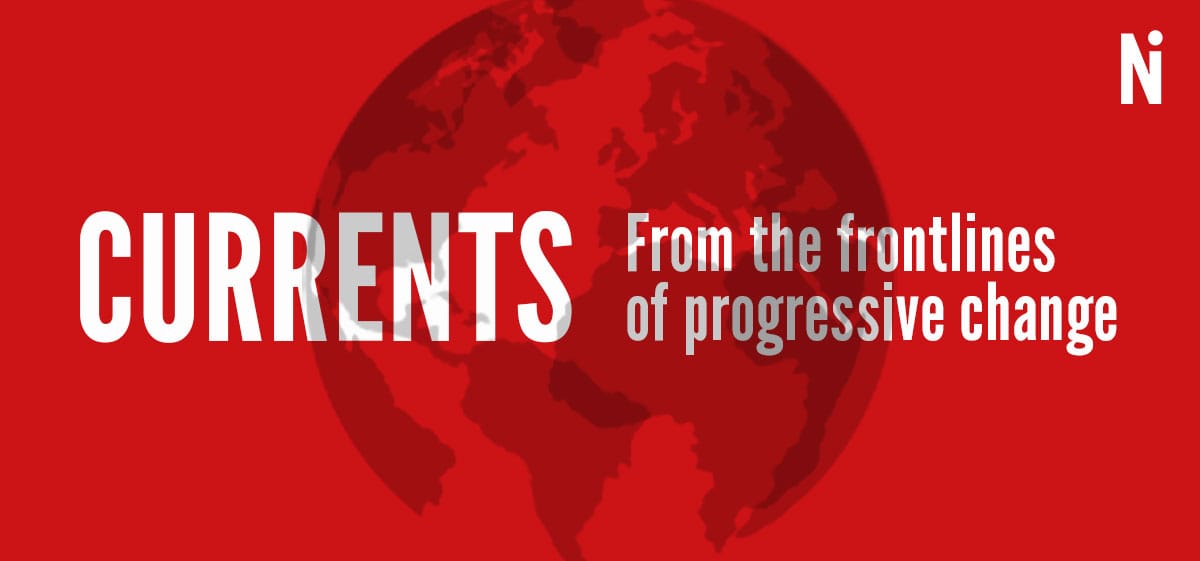How the Belfast Book Festival avoided corporate sponsorship
Conrad Landin in Belfast

What does an era of global crisis mean for a book festival? For a number of key events on the literary calendar, it has created a sense of panic – as corporate sponsorship comes under pressure from activists. Last year investment giant Baillie Gifford announced it was ending sponsorship of all the British literary festivals it previously supported.
This followed a campaign by Fossil Free Books – a network of authors and other literary workers – to leverage the group’s festival sponsorship to call on it to divest from firms linked to fossil fuels and the Israeli genocide in Palestine. A number of authors pulled out of events at the Edinburgh Book Festival and the Hay Festival, which takes place in the Welsh book town of Hay-on-Wye each year – prompting both to sever their links with Baillie Gifford.
There were cries of outrage from festival bosses, and from Baillie Gifford, which protested this characterization of its investments. But in Belfast this month, a smaller literary extravaganza has shown another way. With support from the Arts Council of Northern Ireland and the city council, alongside local sponsors, Belfast Book Festival operates a ‘pay what you decide’ model. Director Sophie Hayles believes this is reaping rewards in increasing event attendance and attracting more diverse audiences. ‘Our pay what you decide policy was a calculated financial risk in difficult times, but the driver was not financial, the driver was thinking about our audiences,’ she says.
What lessons can be learned from last year’s sponsorship debacles?
‘All our sponsors and supporters are local, are really engaged in what we do year round, so know us really well,’ says Hayles, who also runs the Crescent Arts Centre, the venue where all the festival’s events take place. ‘There’s a shared ethos and spirit. That model [of corporate sponsorship] is a transactional reciprocity. It’s very black and white and when something goes wrong there’s very little room for manoeuvre in between.’
The festival has attracted big names like Tessa Hadley and Eimear McBride, both of whom I’m interviewing for NI’s Spotlight feature, which profiles a different creative figure in each issue of the magazine.
I also sit through a gripping event with former producer Sam McAllister, who secured Newsnight’s show-stopping interview with Prince Andrew (and was played by Billie Piper in the Netflix adaptation), and Lucia Osborne-Crowley, who covered Ghislaine Maxwell’s sex trafficking trial in New York, and who is wearing a T-shirt highlighting the genocide in Palestine. They discuss the culture of deference in journalism and how bringing stories to light can be a real battle.
As governments increase military spending and refuse to contemplate taxing the rich, many arts organizations are struggling to survive, and community venues have been forced to close. Hayles points to the importance of ‘third spaces’ away from both the home and the workplace, something that guest editor Husna Ara highlighted in New Internationalist’s issue on loneliness (see Context, Action & Info below).
As the festival entered its final days, racist rioting took hold in a number of smaller towns in Northern Ireland. A leisure centre was torched in the port town of Larne, after a rightwing government minister said ‘a number of individuals’ had been moved to the venue. In the wake of the riots, there are demands for increased police funding, which so often is prioritized over maintaining (or repairing) the community spaces that are so vital for preventing radicalization.
When so-called philanthropists bankroll arts organizations, that gets governments off the hook. But whose interests are they really serving? Those of the public, or big business seeking to launder its reputation? The use of the arts to service the Establishment is nothing new: the Marxist art historian Hans Hess argued that ‘the work of art is a piece of establishment furniture, which makes it clear where power resides’. But he saw art's liberatory potential too, noting that ‘as long as we shall have to live in a world with shadows, we shall have need of some light’.
That, surely, is worth holding on to.
📰 Read NI543: The Crisis of Loneliness – available to subscribers in our digital archive
📚 Support Fossil Free Books
🎥 Watch Scoop, the Netflix film based on Newsnight’s Prince Andrew interview
👉 Conrad has also written more about the work of Hans Hess in Apollo Magazine
Read the latest issue of New Internationalist
Like what you've read? Support us with a tip
Looking for more? Listen to our podcast The World Unspun
Shop ethical goods at our very own Ethical Shop. Create an account and use the code CURR15 for 15% off your first order!

